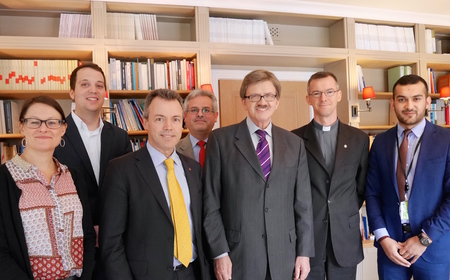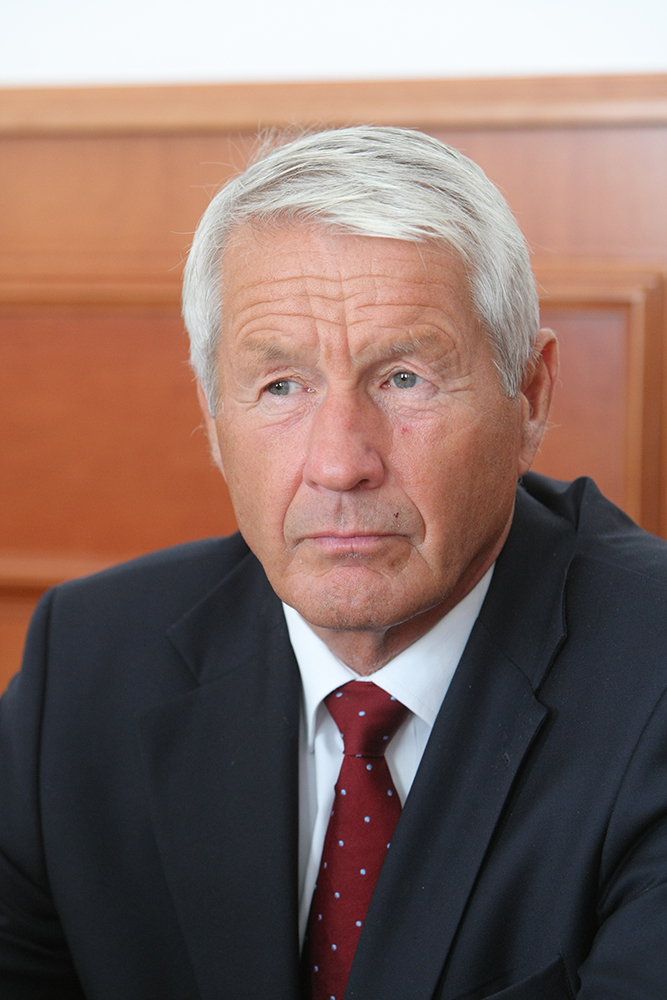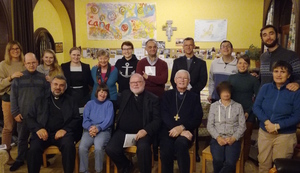06/04/2017
COMECE contribution to the public consultation on the European Solidarity Corps (EN)
The Catholic Church in the European Union
Commission of the Bishops’ Conferences of the European Union

COMECE supports the general idea of creating a European Solidarity Corps, but encourages the EU to quickly provide an own funding line and to develop a wider strategy on volunteering. In December 2016, the EU Commission launched the European Solidarity Corps, which enables young people between the ages of 18 and 30 to take part in solidarity activities. Although more than 24,000 participants have already … Continue reading

COMECE stresses that clear and fraud-proof Value Added Tax (VAT) rules are crucial for the functioning of the European single market, but that simplifying these rules should not take place to the detriment of the objective of a just and equitable tax system. The consultation is part of the VAT Action Plan of the European Commission. It aims to reduce complexity of VAT rules with … Continue reading

The EU needs to apply a more holistic approach to the integration of refugees. This was the outcome of the dialogue COMECE organised with Thomas Mann (EPP), member of the EU Parliament, and several Catholic organisations. Drawing from their own experiences, Caritas Europa and the Jesuit Refugee Service Europe stressed that welcoming refugees has to go hand-in-hand with orientation courses, language assistance and psycho-social support. … Continue reading

In Europe, the proportion of workers reporting working Sundays increased between 2010 and 2015. COMECE believes that a work-free Sunday is an essential pillar of the European social model. Together with the European Sunday Alliance, we launch a call for action to show the need for a common EU-wide regulation. Sunday is of great importance because it allows families to spend time together, employees to … Continue reading
This 20 February marks the United Nations World Day of Social Justice, an underlying principle for peaceful and prosperous coexistence within and among nations. The COMECE Bishops recall that “Care and respect for the poorest and most vulnerable persons in a society are the basic criterion for social justice.” Social Justice is a major challenge for the EU. Today, almost 24% of Europeans are at … Continue reading

COMECE and Caritas Europa welcome the request of the Secretary General of the Council of Europe (CoE) Thorbjørn Jagland to include the Council of Europe’s European Social Charter in the EU proposal of the European Pillar of Social Rights. It is only through a coherent approach in European social policy that the growing divergence between Member States can be resolved. In a few weeks’ time, … Continue reading

119 million Europeans are at risk of poverty and social exclusion. Among them, children and families are still the most affected. The Catholic Church in Europe is particularly involved in the fight against this plague. Convinced of the urgent need for an integrated approach at European level, COMECE puts forward a series of proposals. As the European Commission develops a European Pillar of social rights, … Continue reading